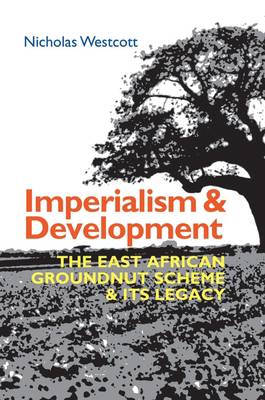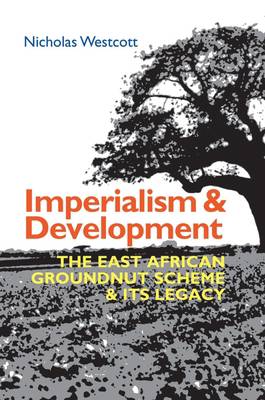
- Retrait gratuit dans votre magasin Club
- 7.000.000 titres dans notre catalogue
- Payer en toute sécurité
- Toujours un magasin près de chez vous
- Retrait gratuit dans votre magasin Club
- 7.000.0000 titres dans notre catalogue
- Payer en toute sécurité
- Toujours un magasin près de chez vous
177,45 €
+ 354 points
Format
Description
A compelling exploration of one of the most ill-advised and calamitous interventions in colonial development history.
As colonial development took off after the Second World War, in the context of national food shortages, Britain's Labour Government initiated the Groundnut Scheme, an extraordinarily ambitious project to convert 3 million acres of bush in Tanganyika into the largest mechanized groundnut farm in the world. It was to prove the largest, most expensive and most disastrous development scheme ever undertaken by the British Government. Never previously analysed in depth, the author draws on a wide range of sources to discuss the political dynamics that drove the Groundnut Scheme forward, despite the gravest doubts of agriculturalists and economists, why it went wrong, and what its impact has been since on the practice of economic development.
Initially employing the United Africa Company as agent, the government set up an Overseas Food Corporation to manage the Groundnut Scheme as an example of socialist development in Africa. Army surplus kit and demobbed soldiers poured into the country and were sent up the railway line to Kongwa to beat the bush. By the time the effort was abandoned in 1950, costs had risen to a colossal 36 million - equivalent to over 1 billion today - and yet almost no groundnuts had been exported. The prototype of many large-scale, government-run, high-cost development projects that failed to deliver, the Groundnut Scheme was perhaps the first major failure of agricultural development in Africa, and its legacy in development practice still with us today.
As colonial development took off after the Second World War, in the context of national food shortages, Britain's Labour Government initiated the Groundnut Scheme, an extraordinarily ambitious project to convert 3 million acres of bush in Tanganyika into the largest mechanized groundnut farm in the world. It was to prove the largest, most expensive and most disastrous development scheme ever undertaken by the British Government. Never previously analysed in depth, the author draws on a wide range of sources to discuss the political dynamics that drove the Groundnut Scheme forward, despite the gravest doubts of agriculturalists and economists, why it went wrong, and what its impact has been since on the practice of economic development.
Initially employing the United Africa Company as agent, the government set up an Overseas Food Corporation to manage the Groundnut Scheme as an example of socialist development in Africa. Army surplus kit and demobbed soldiers poured into the country and were sent up the railway line to Kongwa to beat the bush. By the time the effort was abandoned in 1950, costs had risen to a colossal 36 million - equivalent to over 1 billion today - and yet almost no groundnuts had been exported. The prototype of many large-scale, government-run, high-cost development projects that failed to deliver, the Groundnut Scheme was perhaps the first major failure of agricultural development in Africa, and its legacy in development practice still with us today.
Spécifications
Parties prenantes
- Auteur(s) :
- Editeur:
Contenu
- Nombre de pages :
- 260
- Langue:
- Anglais
- Collection :
- Tome:
- n° 50
Caractéristiques
- EAN:
- 9781847012593
- Date de parution :
- 18-09-20
- Format:
- Livre relié
- Format numérique:
- Genaaid
- Dimensions :
- 156 mm x 234 mm
- Poids :
- 544 g

Les avis
Nous publions uniquement les avis qui respectent les conditions requises. Consultez nos conditions pour les avis.






